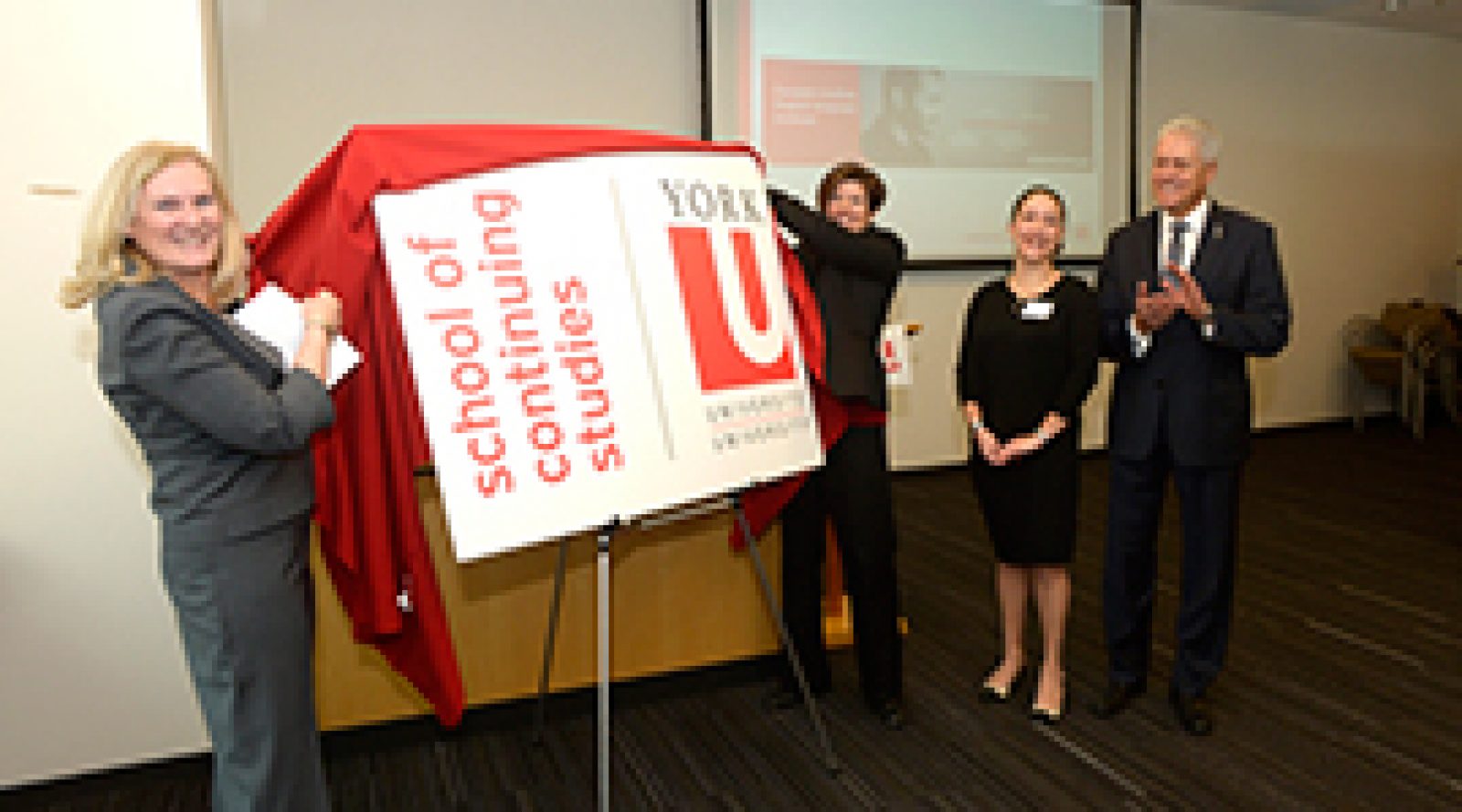A law clerk for 10 years, Sabrina Agricola had always fancied a career in mediation.
“I remembered hearing that you don’t have to be a lawyer to be a mediator. And that was always in the back of my mind,” she says.
Agricola finally made the leap in 2013, signing up for a Certificate in Dispute Resolution at York University, taking advantage of a flexible course structure, which suits people with a busy work life.
“The program is really interactive; there are online forums and discussions. I found the structure great, as you can work full time, but still be a part of university,” she says.
The course is currently York’s largest continuing education program, and now part of the university’s brand new School of Continuing Studies, launched in January.
Tracey Taylor-O’Reilly, founding executive director of the new school, says York is reimagining what continuing education looks like, putting students and employers needs at the forefront, and creating a slew of new programs to suit the marketplace.
“We have carried out research with employers to find out what fields are growing. There has been huge growth in IT programming and support. There are gaps in business, big data, digital arts and engineering.
“Employers are looking for people with data abilities; a skill set that never existed before. In marketing and sales, huge amounts of data need to be analyzed and people don’t have the skills. We are building new programs in these areas,” says Taylor-O’Reilly, adding that these will be rolled out over the next few years.
First up are two new human resources management certificate programs, beginning next fall, with full- and part-time options.
The full-time program will be the first of its kind in Canada.
HR is a growing sector, Taylor-O’Reilly says, and these programs will mean the difference between getting stuck in a mid-level role and excelling to a higher position.
To ensure students become “T-shaped professionals” – people who have both in-depth knowledge of their sector, and broad business skills such as communication and creativity – York consults with an advisory board, made up of employers, which helps shape the content of its programs.
“Employers want graduates that can understand their business, propose strategic human resource solutions and effectively make their case to decision makers. Our programs are for people who want to move into future leadership roles.”
Another key feature of the new school is the flexibility it gives to working students. Certificate programs are designed to allow students to progress quickly, and use their foundation course as a pathway into other programs.
“The goal, more generally, to enable students to take continuing studies to bridge into degree programs or alongside degree programs to enhance professional development and career readiness,” says Rhonda Lenton, vice-president academic and provost.
For example, in the traditional model it could take three to five years to complete a cert. York’s part-time courses, online or in blended format, can be completed in less than two years, with summers off.
The full-time human resources cert can be taken in just eight months, even with work.
“This is about creating life-long learning opportunities for part-time, mature and returning students,” Lenton adds.
